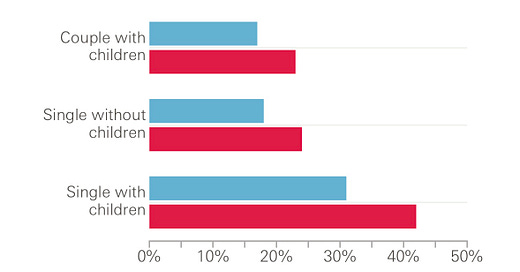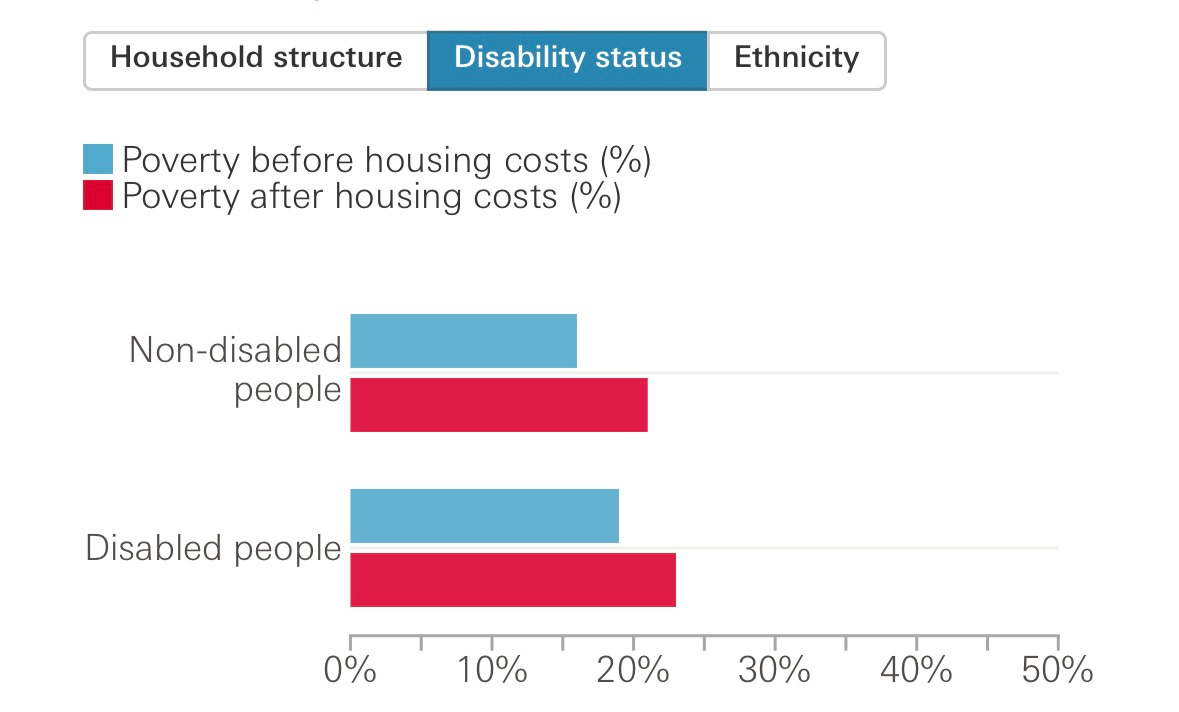Disability and Intersectionality
For Disability Rebellion to be truly inclusive, we must think intersectionally - so that no disabled person is left behind
The Disability Rebellion team is always thinking of ways of how we can best serve the Disabled community. How can we truly be inclusive of all Disabled people, when we all come from different backgrounds and we are all fighting our own unique battles?
The best way to approach this is to think intersectionality. The idea is that most Disabled people don’t just come from one marginalised group, but from more than one marginalised groups. Thinking of disability as just one single issue means that most Disabled People aren’t being represented. So we must think intersectionally, so we don’t leave anybody behind.
This post is the first in a series of posts in which I will talk about the issues that intersect with disability.
What is intersectionality?
“Intersectionality” is a term coined by the civil rights activist and lawyer Kimberlé Crenshaw in 1989, which describes “the double discrimination of racism and sexism faced by Black women, critiquing the "single-axis framework that is dominant in anti-discrimination law…feminist theory and anti-racist politics" for its focus on the experiences of the most privileged members of subordinate groups.”
As an example of how different marginalised groups intersect with each other, The Health Foundation found that “people from minority ethnic groups, disabled people and single parents are at higher risk of poverty.”
The Health Foundation describes their findings:
“People from minority ethnic groups experience greater rates of poverty than white people.
The poverty rates for people of Pakistani and Bangladeshi ethnicity are at least twice as high (48% and 56% respectively) than the rate for white people (19%).
Disabled people are two percentage points more likely to be in poverty than non-disabled people (23% compared with 21%).
42% of single-parent households live in poverty, compared with 12% of couples without children and 23% of couples with children”. 1
How poverty and disability intersect
Poverty is just one of many issues that intersect with disability. In this post, I will examine how.
If you are disabled you are more likely to be living in poverty. The Social Metrics Commission (SMC) found that:
“…of the 14.9 million people in poverty, 4.7 million of them were Disabled, with 3.2 million Disabled working-age adults, 600,000 Disabled children and 800,000 Disabled pension-age adults.”2
Being Disabled is expensive
A disabled person experiences extra costs of £975 to £1,010 per month, according to Scope. This is what PIP and other disability benefits should help with, but PIP payments for most Disabled People don’t go far enough and many Disabled people struggle to avoid food and other basics, let alone pay for the extra costs associated with Disability (e.g. extra transport costs due to the inaccessibility of public transport, the cost of mobility aids and assistive devices, certain dietary restrictions, treatments that the health service won’t fund, putting adaptations into the house and paying for care etc). With the cost of living always on the rise, disability benefits cannot cover the costs of heating, living and other expenses related to disability. If we can’t afford the basics, how can Disabled people cope with the additional costs of disability?
Employment struggles
Additionally, Disabled people experience higher levels of unemployment than abled people due to inaccessible workplaces “or inflexible employment structures where they were denied their legal entitlement to reasonable adjustments.3”
Many Disabled people that I have spoken to over the last few months have experienced unsupportive employers, bullying from colleagues and uncaring bosses, job losses and often not making it past the interview stage once their disabilities became known.
With only 1 in 5 employers willing to hire disabled people and many employers still not making reasonable adjustments to make their workplaces accessible, despite the laws, Disabled people are being left out of the workplace and forced to beg for a pittance of money, just to be able to survive.
Homelessness
Poverty and less employment opportunities for Disabled People, it is not surprising that homelessness is on the increase for Disabled People. The University of Bristol found that “people with a disability or experiencing ill health are significantly more likely to find themselves homeless.” Their report found “that there has been a huge rise in these groups experiencing poverty and being under threat of homelessness – an increase of 73% in England between 2018/19 and 2021/22.4”
Fear of applying for disability benefits
It may not surprise anyone who is reading this that a lot of Disabled People are reluctant to claim disability benefits because the process is so complex and daunting, and claimants are treated as if they’re on suspicion of being criminals. It doesn’t help that a lot of assessors do not understand invisible illnesses and think of disability on pure reductive terms. Disabled people who are reluctant to apply may feel that the distress caused by the process itself and the length of time it takes is not worth it. But for most Disabled people who cannot work, they have no choice but to go through the distressing process. Many disabled people are unsuccessful in the claims and have to go through the additional stress of an appeal against the decision. And even when you do get benefits, claimants are forced to live with the constant fear of losing at any time.
And then there’s stigma that is attached to claiming benefits; the government and media are making life even more difficult for Disabled people with the constant churning out of anti-disabled rhetoric and negative headlines that paint Disabled people as scroungers. So many people I know feel guilty for needing to survive on benefits - even though they don’t have the choice. Disabled people are being made to feel like burdens for needing help. As The Conversation says: “Stigma against benefits has made devastating poverty acceptable in Britain.”
But this is not right. No-one should ever feel guilty for needing help. As Nye Bevan says:
www.health.org.uk/evidence-hub/money-and-resources/poverty/inequalities-in-poverty
https://socialmetricscommission.org.uk/wp-content/uploads/2023/12/SMC-2023-Report-Web-Hi-Res.pdf
https://natcen.ac.uk/disability-and-financial-hardship#:~:text=What%20the%20research%20found,delay%20applying%20for%20disability%20benefits.
https://www.bristol.ac.uk/news/2023/may/homelessness-and-disability.html






